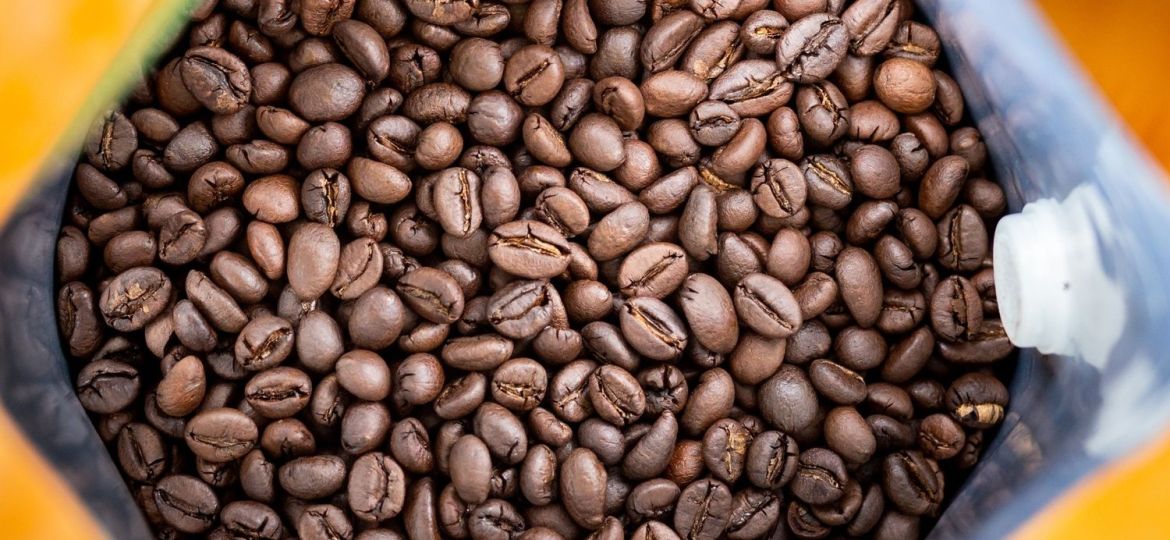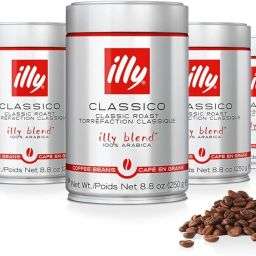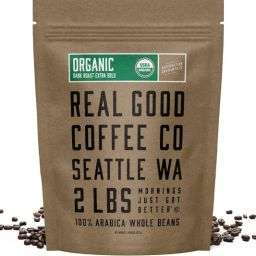
Organic Peruvian Coffee stands out in the global coffee market for its rich history, unique flavor profiles, and the sustainable practices behind its production. Originating from Peru, a country with diverse microclimates and rich soil, this coffee is cultivated in areas that are perfect for growing Arabica beans, the most flavorful and high-quality coffee beans.
The organic cultivation method ensures that the coffee is grown without the use of synthetic pesticides or fertilizers, preserving the natural environment and providing a healthier option for consumers.
The importance of Organic Peruvian Coffee in the coffee industry cannot be overstated. With its distinct flavors and high-quality beans, it contributes significantly to the specialty coffee market. The organic certification adds value, appealing to a growing segment of consumers looking for sustainable and ethically produced goods. Peru’s commitment to organic farming practices not only enhances the coffee’s quality but also supports local economies and promotes environmental sustainability.
Key Takeaways
- Significant Contribution to Specialty Coffee: Organic Peruvian Coffee is a key player in the specialty coffee market, known for its unique taste and high-quality beans.
- Rich and Diverse Flavor Profiles: The coffee boasts a range of flavors, from nutty and chocolate to citrus, reflecting the diverse growing regions within Peru.
- Sustainable and Ethical Production: Cultivated without synthetic pesticides or fertilizers, this coffee supports environmental sustainability and promotes the welfare of local farmers.
- Organic Certification: The organic label ensures that the coffee meets strict standards for organic farming, appealing to health-conscious consumers and those interested in ethical consumption.
- Supports Local Economies: The organic coffee industry in Peru provides vital income for small-scale farmers and contributes to the development of rural areas.
History and Origin
The journey of coffee in Peru began in the 18th century when Spanish explorers introduced coffee to the Inca civilization. Over time, Peru emerged as a significant coffee producer, with the industry thriving due to the country’s ideal climatic and geographical conditions for coffee cultivation.
This history sets the foundation for what is now a burgeoning segment of organic coffee production, reflecting a deep-rooted coffee culture.
Regions and Growing Conditions
Peru’s coffee-growing regions are primarily located in high-altitude areas of the Andes mountains, including Amazonas, Ayacucho, Cusco, and Huánaco. These regions offer the perfect blend of high altitude, nutrient-rich soils, and a favorable climate, contributing to the distinct flavor profiles of Peruvian coffee.
The diversity in microclimates across these regions allows for a wide variety of flavors, with coffee from higher altitudes often exhibiting higher acidity and sweeter flavors.
Flavor Profile
Organic Peruvian coffee is celebrated for its bright, mellow flavors, characterized by medium body and moderate acidity. Flavor notes can range from nutty and chocolate to citrus, depending on the specific region and altitude at which the coffee is grown. This versatility in flavor makes Peruvian coffee highly sought after in the specialty coffee market, appealing to a broad spectrum of palates.
Cultivation Practices
Organic farming practices in Peru emphasize the avoidance of synthetic pesticides and fertilizers, focusing instead on natural methods to nourish the soil and control pests. This approach not only preserves the health of the ecosystem but also enhances the natural flavor of the coffee beans, ensuring a cleaner and healthier cup of coffee.
Harvesting and Processing
The harvesting of organic Peruvian coffee primarily involves hand-picking to select the ripest cherries, followed by traditional processing methods such as wet or dry processing.
These methods, coupled with the careful attention to detail during the fermentation and drying phases, are crucial for developing the coffee’s final taste profile. Such artisanal processing techniques are a testament to the quality and care put into organic Peruvian coffee.
Certifications
Certifications like USDA Organic, Fair Trade, and Rainforest Alliance are significant for Organic Peruvian Coffee. They not only validate the coffee’s quality and ethical sourcing but also ensure sustainable farming practices. These certifications mean consumers can trust in the coffee’s origins, supporting ethical and environmental standards that benefit both the planet and the coffee producers.
Organic Peruvian Coffee encapsulates the essence of Peru’s rich coffee heritage, showcasing the meticulous care and sustainable practices that go into its production. From its diverse flavor profiles to its organic cultivation methods, this coffee stands as a beacon of quality and sustainability in the global coffee industry.
Roast Profiles
The roast level of Organic Peruvian Coffee significantly influences its flavor profile. Light roasts tend to highlight the bean’s original flavors, featuring brighter acidity and a lighter body. Medium roasts offer a balanced flavor, acidity, and body, making them ideal for showcasing the unique characteristics of Peruvian coffee. Dark roasts provide a fuller body and deeper flavors, often with a bittersweet finish that masks the bean’s natural flavors.
Single-Origin vs. Blends
Single-origin Organic Peruvian Coffee is prized for its ability to offer a distinct taste experience that reflects the unique growing conditions of its origin. These coffees allow connoisseurs to appreciate the specific flavor nuances of different Peruvian regions.
Blends, on the other hand, are crafted to achieve a consistent flavor profile by combining beans from various locations, which can sometimes dilute the unique characteristics of Peruvian beans.
Buying Tips
When selecting Organic Peruvian Coffee, look for certifications like USDA Organic and Fair Trade to ensure ethical and sustainable production practices. Consider the roast profile that suits your taste preferences, and explore single-origin options to experience the diverse flavors of Peru.
Purchasing from reputable sources that provide transparent information about the coffee’s origin and processing methods is also essential.
FAQs
- What is the difference between organic and regular coffee? Organic coffee is grown without synthetic pesticides or fertilizers, offering a cleaner taste and environmental benefits, while regular coffee may not adhere to these standards.
- How should I store my coffee to maintain freshness? Store coffee in an airtight container at room temperature, away from direct sunlight, moisture, and heat to preserve its freshness and flavor.
- Why is Peruvian coffee unique? Peruvian coffee is unique due to its diverse microclimates, which contribute to a wide range of flavor profiles, from bright and fruity to smooth and chocolatey. The emphasis on organic farming practices also enhances its quality and appeal.
Final Thoughts
Organic Peruvian Coffee represents a fusion of rich cultural heritage, diverse climates, and committed sustainable farming practices, offering coffee lovers a unique and ethical choice. With its wide range of flavors, from nutty and chocolate to citrus, it caters to a variety of taste preferences, making it a standout in the global coffee scene.
When selecting this coffee, consider roast profiles, the distinction between single-origin and blends, and prioritize certifications to ensure quality and sustainability. Embracing Organic Peruvian Coffee not only means enjoying a delicious cup but also supporting responsible coffee production that benefits both the environment and the producers.









